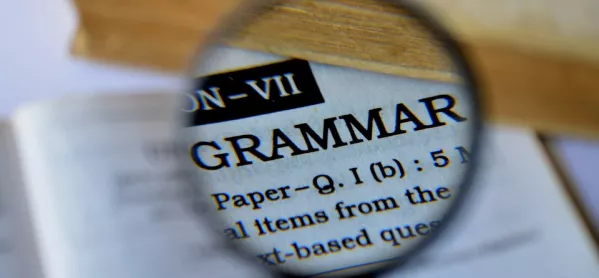Those of us who oppose the expansion of grammar schools are not lacking in data to support our argument. A variety of studies have shown that in the parts of the country where selection already exists, there is a greater disparity in performance between children from poor neighbourhoods, and those from wealthier backgrounds. While there is some evidence to suggest that those who do attend grammars make more progress than they otherwise would, it is clear that children from disadvantaged backgrounds or those with SEND are far less likely to get into these schools in the first place.
And yet the government does not seem deterred from pressing ahead with the idea. This is because it is essentially a politically-motivated policy, not an educationally-based one. I suspect that the data which interests this government the most is that produced by various polls showing that a substantial proportion of the population are in favour of the reintroduction of grammars. An ICM poll carried out in September found 65 per cent in favour of more grammar schools. Perhaps unsurprisingly, it is even more popular with those who identify themselves as Conservative voters, as demonstrated by the BMG poll. Politicians look for policies that will play well with their core vote and appeal to potential new voters, and in reintroducing academic selection they feel they may just have found one. It is, of course, also a convenient distraction from Brexit woes.
Schools minister Nick Gibb’s recent assertion that grammar schools would only be opened where there is popular demand appears only to support this argument. If the reintroduction of grammar schools is genuinely about improving social mobility then surely these schools would be carefully targeted in areas where the biggest problems with social mobility exist, not simply where there is the strongest demand from parents. Doesn’t this demonstrate that the policy is less about social mobility and more about gaining votes?
Grammar schools: popular, not right
The government would do well to remember that just because a policy is popular, it doesn’t necessarily make it right. After all, as recently as five years ago a YouGov poll found 49 per cent in favour of the reintroduction of corporal punishment in schools.
If I’m right and this is more about politics than education, then perhaps we should start to approach the debate from that angle too.
Whilst the idea has a certain degree of understandable popularity amongst the electorate, I wonder how popular it will be in reality. The fact remains that however this is implemented, the overwhelming majority of children will not get a place at the grammar school, including many of those who have done very well at primary school. How will the pro-grammar parent feel when they discover that it turns out there isn’t a place for little Jimmy at the shiny new school or centre of excellence? They are likely to be even more upset when they realise that another child from the same class got in with a lower score on the test because the pass mark was lowered for those from a disadvantaged background (as has been proposed by some as a way to tackle the disproportionately low number of pupils from disadvantaged backgrounds currently attending selective schools). How will they respond, I wonder, when they discover that the school their child attends instead is now finding it harder to attract the best teachers?
In the longer-term, however the selection process is managed, and regardless of how tutor-proof the tests become, there will once again be a generation of young people growing up who will see themselves as having ‘failed’ the 11 Plus (or indeed the 14 Plus or whatever arbitrary point at which the selection is made). Again, how likely are these young people to vote for the party that introduced such a system?
If this policy really is indeed more about politics than education, then perhaps we need to address the political arguments too and show that there is a real potential that it will not turn out to be as popular in the long-term as the government might have hoped. A policy that creates winners and losers can be attractive to a swing voter. Until, of course, they discover that they might just have become one of the losers.
James Bowen is director of middle leaders’ union NAHT Edge. He tweets at @JamesJkbowen
Want to keep up with the latest education news and opinion? Follow TES on Twitter and like TES on Facebook




